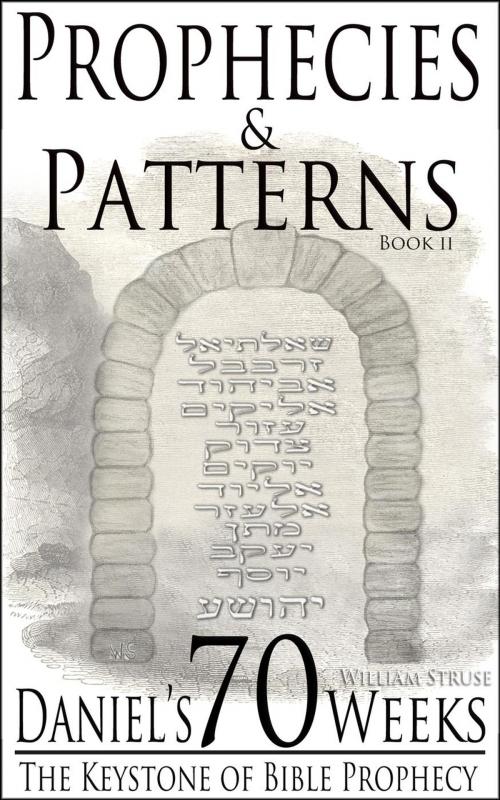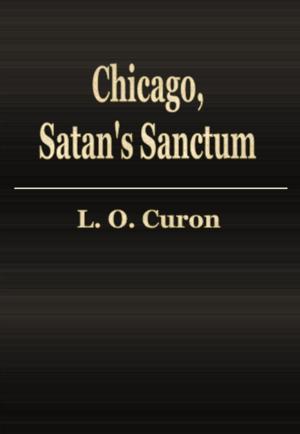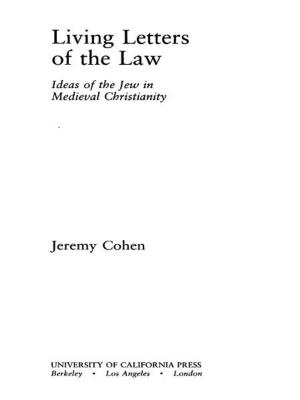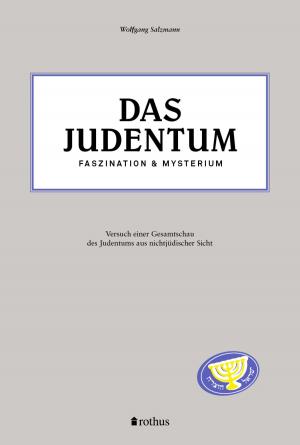Daniel's 70 Weeks: The Keystone of Bible Prophecy
Prophecies and Patterns, #2
Nonfiction, Religion & Spirituality, Bible & Bible Studies, Prophecies, Judaism| Author: | William Struse | ISBN: | 9781533773197 |
| Publisher: | William Struse | Publication: | April 20, 2016 |
| Imprint: | Language: | English |
| Author: | William Struse |
| ISBN: | 9781533773197 |
| Publisher: | William Struse |
| Publication: | April 20, 2016 |
| Imprint: | |
| Language: | English |
Did the Bible really predict the coming of the Messiah before it happened? To answer that question William Struse takes you on a Biblical adventure in search of the promised Messiah. Of all the prophetic texts in the Bible, and by some counts there are over 2000, there is only one prophecy which gives a specific datable timeline for the coming of the Messiah. That prophecy found in the 9th chapter of the book of Daniel is commonly called Daniel’s 70 Weeks.
Did you know?
- The prophecy of 70 Weeks gives the date for the birth the Messiah.
- The prophecy also tells of the Messiah’s death and his resurrection.
- The prophecy warns of the destruction of Jerusalem and its desolation.
- The prophecy confirms the “covenant and mercy” promised to Abraham and his descendants, the Jewish people.
In a world where some question the Jewish people’s ancestral rights to the land of Israel, the prophecy of 70 Weeks proves mathematically that indeed YHWH’s oath which he swore with Abraham and his “seed” is in fact true, literal, and eternal.
Did you know?
- That the “covenant and mercy” mentioned in Daniel 9:4 refers to the oath YHWH swore with Abraham and his “seed” in Genesis 22.
- That the word swore in Genesis 22 comes from the Hebrew shaba and is the very root for the Hebrew word shabuwa (weeks) as in Daniel’s 70 Weeks (Shabuwa).
- That this covenant made with Abraham is the first recorded covenant YHWH swore (shaba) with any man in the Bible.
- That this oath of sevens is an underlying covenantal theme of the entire Biblical record.
As you explore the Biblical record in this book, you’ll see why the prophecy of 70 Weeks is the keystone between the Old and New Testaments (Covenants). Quite literally, this prophecy bridges the Old Testament Torah and Prophets, which speak of a coming Messiah, with the New Testament Apostles who record the fulfillment of those very prophecies in the person of a first century Jewish man named Yeshua.
So if you’ve ever wondered whether the Bible’s prophecies which speak of a coming Messiah are true, by the time you have finished Daniel’s 70 Weeks: The Keystone of Bible Prophecy you’ll have an answer to that question and you will know why the Bible is truly different than any other religious text recorded by man.
Did the Bible really predict the coming of the Messiah before it happened? To answer that question William Struse takes you on a Biblical adventure in search of the promised Messiah. Of all the prophetic texts in the Bible, and by some counts there are over 2000, there is only one prophecy which gives a specific datable timeline for the coming of the Messiah. That prophecy found in the 9th chapter of the book of Daniel is commonly called Daniel’s 70 Weeks.
Did you know?
- The prophecy of 70 Weeks gives the date for the birth the Messiah.
- The prophecy also tells of the Messiah’s death and his resurrection.
- The prophecy warns of the destruction of Jerusalem and its desolation.
- The prophecy confirms the “covenant and mercy” promised to Abraham and his descendants, the Jewish people.
In a world where some question the Jewish people’s ancestral rights to the land of Israel, the prophecy of 70 Weeks proves mathematically that indeed YHWH’s oath which he swore with Abraham and his “seed” is in fact true, literal, and eternal.
Did you know?
- That the “covenant and mercy” mentioned in Daniel 9:4 refers to the oath YHWH swore with Abraham and his “seed” in Genesis 22.
- That the word swore in Genesis 22 comes from the Hebrew shaba and is the very root for the Hebrew word shabuwa (weeks) as in Daniel’s 70 Weeks (Shabuwa).
- That this covenant made with Abraham is the first recorded covenant YHWH swore (shaba) with any man in the Bible.
- That this oath of sevens is an underlying covenantal theme of the entire Biblical record.
As you explore the Biblical record in this book, you’ll see why the prophecy of 70 Weeks is the keystone between the Old and New Testaments (Covenants). Quite literally, this prophecy bridges the Old Testament Torah and Prophets, which speak of a coming Messiah, with the New Testament Apostles who record the fulfillment of those very prophecies in the person of a first century Jewish man named Yeshua.
So if you’ve ever wondered whether the Bible’s prophecies which speak of a coming Messiah are true, by the time you have finished Daniel’s 70 Weeks: The Keystone of Bible Prophecy you’ll have an answer to that question and you will know why the Bible is truly different than any other religious text recorded by man.















